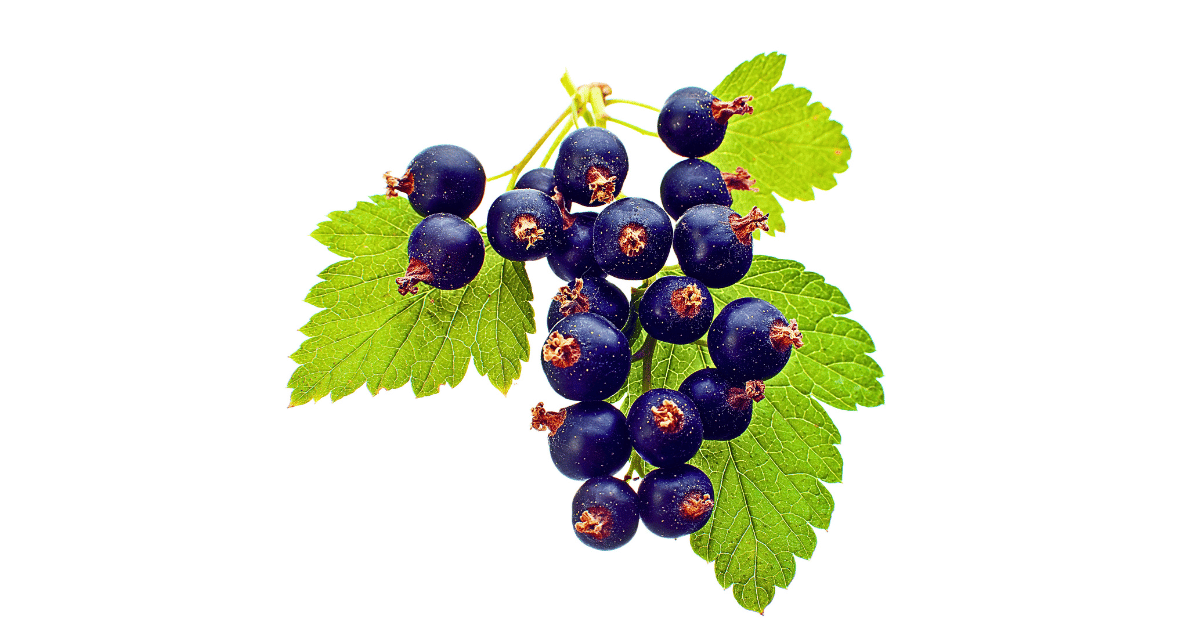Black Currant Benefits: Antioxidants for Cellular Defense
Step right up to the world’s most clandestine and underestimated garden ninja: the black currant. Cloaked in a glossy purple-black guise, this tiny fruit is the unsung hero of the berry universe.
With a history steeped in drama—once exiled from American soil to thwart a threat to the timber industry—black currants have battled their way back onto the scene. They’re more than just the ‘forbidden fruit’; they’re the James Bond of the berry world, stealthily unleashing a barrage of nutritional might with every succulent bite.
Prepare to embark on an epicurean odyssey as we unravel the secrets of these delectable little orbs.

Potent Vitamin C Content
Black currants are powerhouses of vitamin C, boasting four times the amount found in oranges, gram for gram. A single cup (approximately 112 grams) of fresh black currants contains over 200% of the Daily Value of vitamin C. This crucial antioxidant acts like a defensive lineman, intercepting free radicals before they can cause cellular damage.
Rich in Anthocyanins
Packed with anthocyanins, the pigments that give black currants their deep purple hue, these berries contain about 190 mg per 100 grams. Research shows anthocyanins may reduce the risk of cardiovascular diseases by inhibiting oxidation of LDL cholesterol — imagine them blocking LDL oxidation like a game of Tetris, where matching antioxidants neutralize potential threats.
Gamma-Linolenic Acid (GLA)
One often overlooked aspect of black currants is their content of gamma-linolenic acid or GLA. A rarity in the fruit world, GLA is an omega-6 fatty acid that, in a twist of fate, supports anti-inflammatory pathways. Around 15% of black currant seed oil is made up of GLA, setting the stage for a health-focused oil press.
Flavonoids and their Role
Within the matrix of black currants, flavonoids like quercetin and myricetin play an unsung role. Quercetin, for instance, may synergize with vitamin C, performing a health duet that strengthens capillary integrity — think of them as a dynamic duo, `C + Q = fortified vessel walls`.
Mineral Wealth
Calcium, potassium, and phosphorus may not headline in black currant nutritional profiles, but they shouldn’t be discounted. These trace minerals work like an elemental tag team, contributing to bone health (Ca), muscle function (K), and energy production (P).
Eye Health Optimization
Research points to black currants as vision protectors. Their high concentration of zeaxanthin and lutein, around ~35 µg/g, protect your retina’s macula like sunglasses, filtering harmful blue light. Plus, black currants could improve blood flow to ocular tissues by reducing eye fatigue in a mathematical blink proportional to their intake.
Immunity Boost
Black currants aren’t just snacks; they’re immune system fortifiers. Containing an impressive spectrum of B vitamins as well, these berries help to modulate the body’s immune response, optimizing it in a manner akin to tuning a complex instrumental orchestra.
Skin Health
What’s remarkable about black currants is their biotin content; this B vitamin is a cornerstone of skin health. Like adding a moisturizer to dry skin, biotin helps maintain the skin’s infrastructural integrity, keeping it pliable and resilient against environmental stressors.
Anti-Inflammatory Effects
Not to be outdone, the anti-inflammatory properties of black currants stand out. Polyphenols, like those in black currants, have been shown to reduce markers of inflammation by as much as 12% in some studies — consider these compounds as a team of bioactive fire extinguishers, dousing the flames of chronic inflammation.
Cognitive Function Support
If the body were a computer, black currants could be viewed as a systems upgrade for the brain. With compounds that may favorably impact neuroplasticity and memory formation, ingesting these berries might just be thought of as `Berries In = Better Brain Function Out`.
Digestive Health
Black currants also contribute to digestive harmony. Their dietary fiber — approximately 5.5 grams per 100 grams — aids in bowel regularity and microbiota balance, acting like an organic plumber keeping the gut’s pipes clear and functional.
Cardiovascular Health
The anti-thrombotic properties of black currants help prevent the formation of blood clots — picture tiny berry agents disbanding a clot formation as though resolving a microscopic traffic jam in blood vessels.
Blood Sugar Regulation
Thought to play a role in blood sugar regulation, these berries impact blood glucose levels by promoting insulin sensitivity. It’s as if black currants whisper to insulin receptors, enhancing their ability to lower blood sugar like an accountant might optimize a spreadsheet.
Anti-Cancer Potential
Several compounds in black currants have shown promise in the fight against cancer. Like a recon team, anthocyanins and flavonoids may disrupt the growth and proliferation of malignant cells, mapping out a biochemical strategy to suppress tumor development.
Longevity and Vitality
Lastly, the overall nutrient density of black currants contributes to longevity and vitality. Imagine these nutrients forming a microscopic security detail, extending the health span and enhancing the quality of life — paving a roadway to a longer, more vital existence.
In sum, black currants are a treasure trove of nutrients, each serving as an integral player in the elaborate symphony of health, contributing to incredible benefits that extend from the cellular level to comprehensive well-being. Their potential makes them not just a delicious fruit, but a compelling candidate for the title of ‘superfood.’
